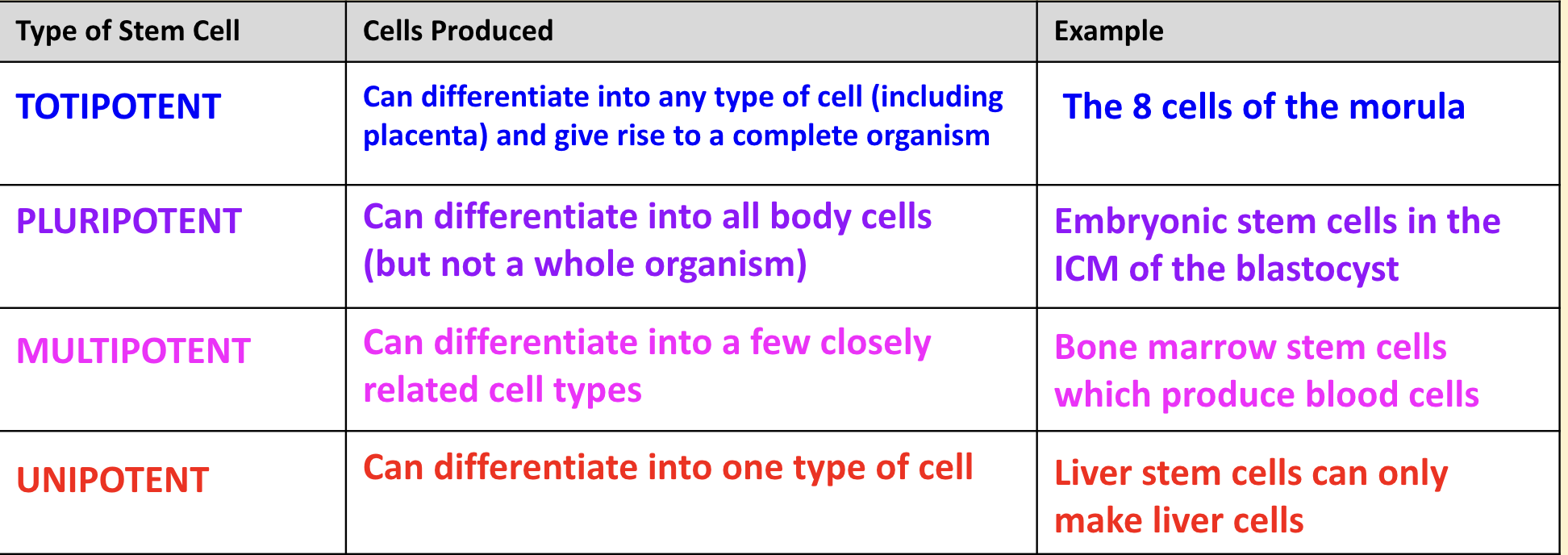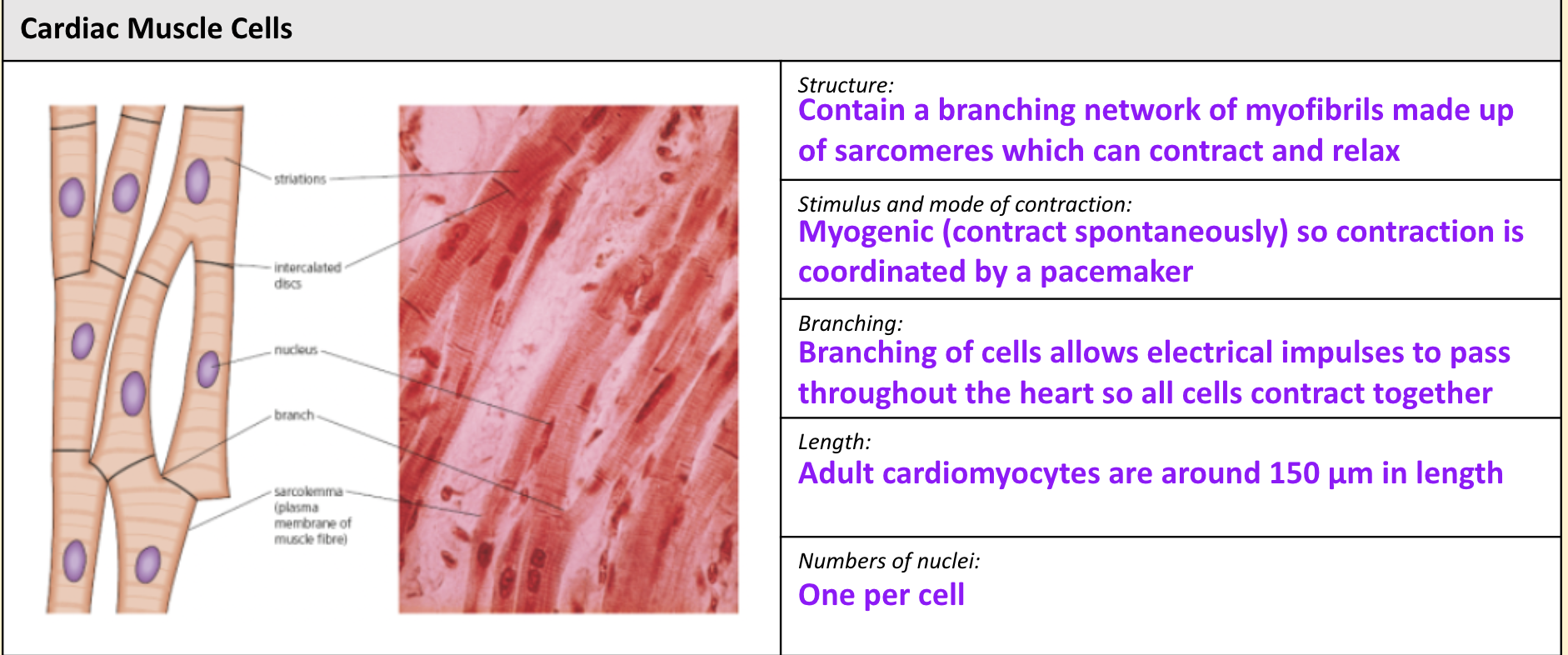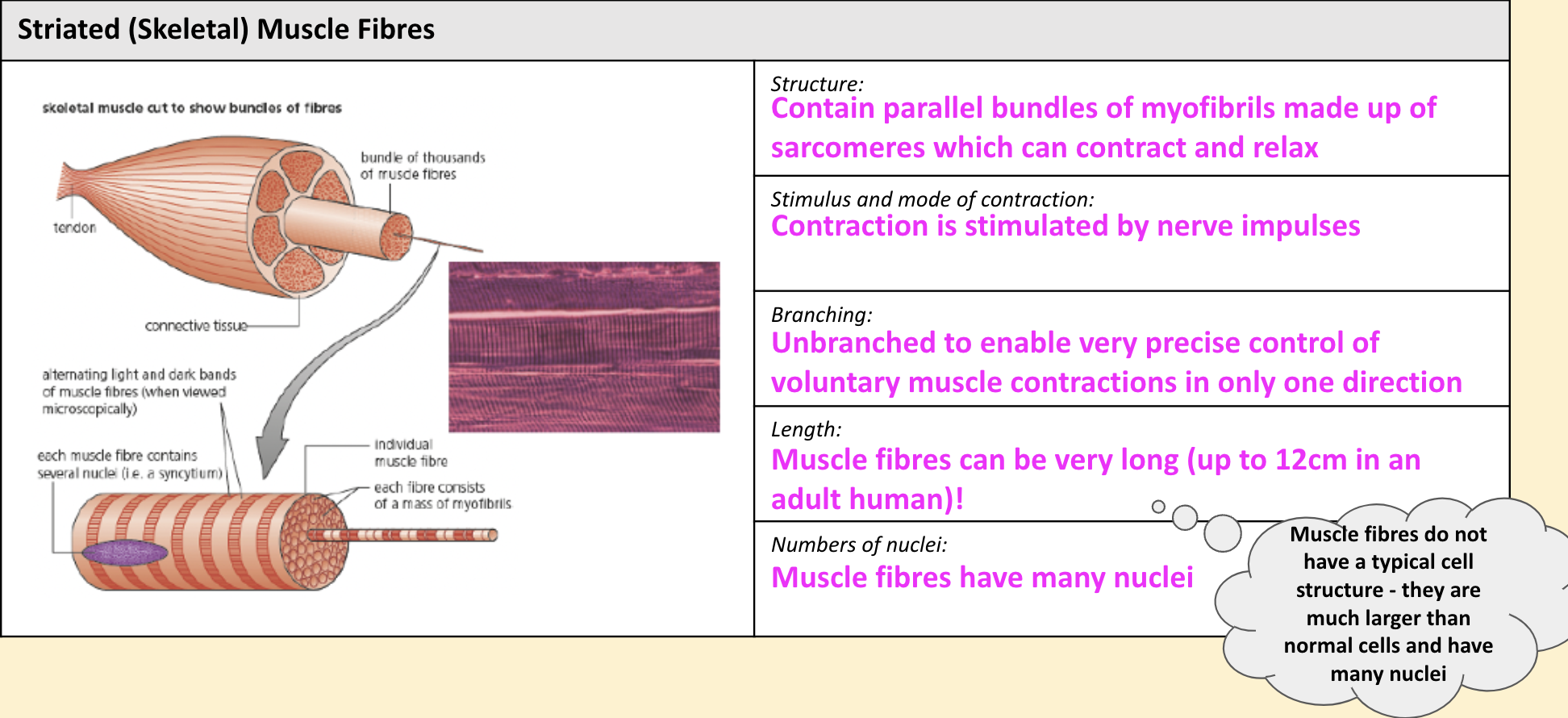B2.3 Cell Specialisation
1/10
Earn XP
Description and Tags
Bio
Name | Mastery | Learn | Test | Matching | Spaced | Call with Kai |
|---|
No analytics yet
Send a link to your students to track their progress
11 Terms
What is a stem cell?
A stem cell is an unspecialised cell which retains the capacity to divide, and can differentiate to become specialised.
What makes these cells differentiate and become specialised.
During the process of cell differentiation, certain genes are either switched on (expressed) or off (silenced). The genes which are expressed will determine how a cell develops.
What is a morphogen and what is its role?
Signalling molecules whose concentration alters gene expression and controls stem cell differentiation.
The four properties of stem cells.

What is a stem cell niche?
Area of a tissue that provides a specific environment where stem cells exist in an undifferentiated and self-renewable state, and where they receive stimuli to determine their behaviour.
What determines what happens to stem cells in their niche.
Cell to cell interactions with surrounding cells
interactions with extracellular matrix
Signalling molecules can activate or prevent gene expression.
Give 2 examples of stem cell niches.
Bone marrow: Provides a microenvironment that regulates the behavior and maintenance of hematopoietic stem cells (HSCs), which are responsible for producing all blood cell types.
Hair follicles act as a stem cell niche by housing bulge hair follicle stem cells, found near the sebaceous gland and the hair erector muscle.
What is the surface area of a cell and what processes depend on this.
Plasma membrane - influences the rate of exchange by diffusion and rate of heat exchange.
Surface area influences how fast substances can enter and exit.
What makes up volume of a cell? What processes are dependent on this?
The cytoplasm. Rate of metabolism and rate of heat production
Adaption of cardiac muscle cells

Adaption of fibres
